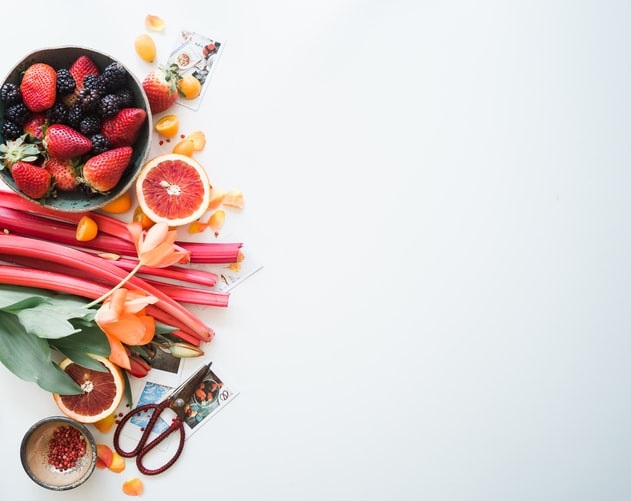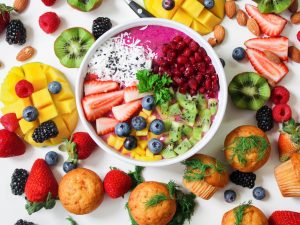
27 Dec Is Your Diet Causing Inflammation? How to Help Your Body Heal
Typically, this time of year you may be worried about overindulging at holiday get-togethers or already planning your New Year’s resolutions to change your diet. What you might not be thinking is how your daily diet actually affects your body in how it functions and heals from illness and injury. It isn’t useful to think of food as “good” or “bad” but rather consider how eating certain foods (and how much) can impact you – and your goals. We share what foods can contribute to inflammation in your body, as well as what foods can reduce it (and why you want that). 
Inflammation:
When your body needs to repair itself – either in injury or illness – you’ll get some internal inflammation. This doesn’t have to be all bad; after a long run, a hard work out, a tough game of basketball, etc. you’ll notice you’re sore….that’s inflammation! Your body is sending out the repair crew to fix the damage done at a cellular level. Again, this process isn’t inherently bad! If you lift weights, you’ll eventually gain muscle thanks to your body’s rebuilding tactics. Likewise, when recovering from an illness, your body will pull out all the stops and you’ll have some inflammation as you recover.
Chronic inflammation is when your system is constantly revved up; it may be genetic, environmental, or a whole host of reasons – and many autoimmune diseases feature inflammation as a hallmark. Inflammation may even be the cause of other conditions, rather than a byproduct.
Where does your diet come in? If you eat foods that help to decrease inflammation, you can help your body recover better and faster when it comes to injury/illness; however, if you consistently eat food that promotes inflammation, you may play a role in slowing your recovery and/or perpetuating your body’s inflammatory cycle. This is a really complicated topic, but by improving your nutrition, you can work to improve your body’s overall functioning.
Foods that Cause Inflammation
Red meat
Processed meat (hot dogs, deli meat, etc)
Soda and sugary beverages
French fries
Refined carbohydrates (highly processed food)
Margarine and butter substitutes
Foods that Fight Inflammation
Tomatoes
Olive oil
Green, leafy veggies (spinach, kale)
Colorful fruit (strawberries, blueberries, cherries)
Fried food Fish (tuna, salmon, sardines)
Nuts (almonds, walnuts)
Even if you can’t commit to a total refrigerator overhaul, remember that eating some less-healthy foods in moderation isn’t likely to be a disaster; however, try to have most of your food support your health. By choosing food that helps reduce inflammation, you can help your body deal with challenges and recover faster. If you can’t remember a list of food, try this easy-to-remember tip: shop the perimeter of the grocery. Those areas have the produce, meat, and diary sections, while the center areas are loaded with the processed foods.
If you’re looking to improve your health, an annual PT check-up is a great place to start. Body One Physical Therapy is locally-owned and operated, with three locations serving Central Indiana: North Indianapolis/Carmel, Fishers, and Zionsville. Don’t settle for feeling any less than your best, call Body One today!
Sources: https://www.health.harvard.edu/newsletter_article/Inflammation_A_unifying_theory_of_disease
https://www.health.harvard.edu/staying-healthy/foods-that-fight-inflammation




